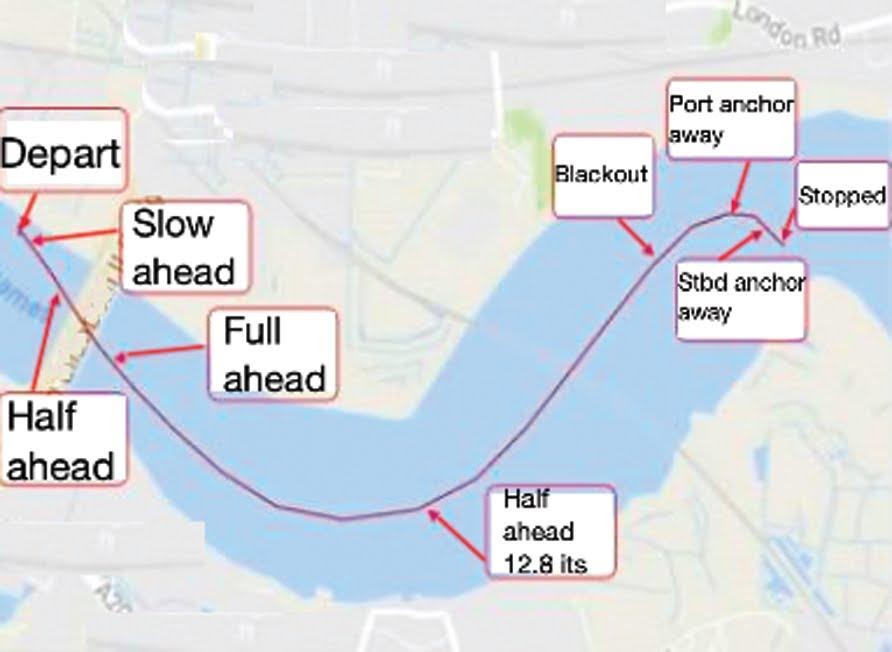Anchors can do more than simply keep a ship in place. In a recent Mars Report a tanker used its anchors as an emergency brake and managed to prevent grounding.
The Mars reports are compiled (anonymously) by The Nautical Institute to prevent other accidents from happening. A summary of the incident:
A tanker in ballast left its berth in a river estuary under pilotage. After leaving the berth, speed was gradually increased and then adjusted until a speed of nearly ten knots was achieved.
Some eighteen minutes after departure a power blackout occurred. Power could not be regained and the vessel’s speed began to slow so much that steerage became difficult. The port anchor was dropped (vessel speed 5.3 knots) and about two minutes later the starboard anchor was also let go (vessel speed 3.8 knots). The vessel stopped safely within a few minutes.

Soundings were taken around the bulbous bow and confirmed the vessel had not grounded. No changes were observed in the vessel’s tank soundings and no spill or leakage was observed.
Advice from The Nautical Institute
- Have your anchors at the ready when navigating restricted waters.
- Be aware that anchors can be pulled from the ship if the speed is too high.
- If emergency anchoring is necessary, ensure the crew are well clear of the chain as it pays out.
Mars Reports
This accident was covered in the Mars Reports, originally published as Mars 202017, that are part of Report Number 329. A selection of this Report has also been published in SWZ|Maritime’s April issue. The Nautical Institute compiles these reports to help prevent maritime accidents. That is why they are also published on SWZ|Maritime’s website.
More reports are needed to keep the scheme interesting and informative. All reports are read only by the Mars coordinator and are treated in the strictest confidence. To submit a report, please use the Mars report form.









Trackbacks/Pingbacks